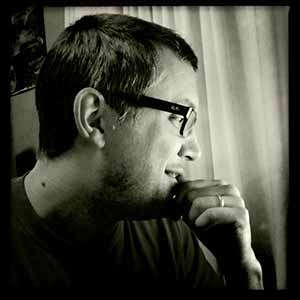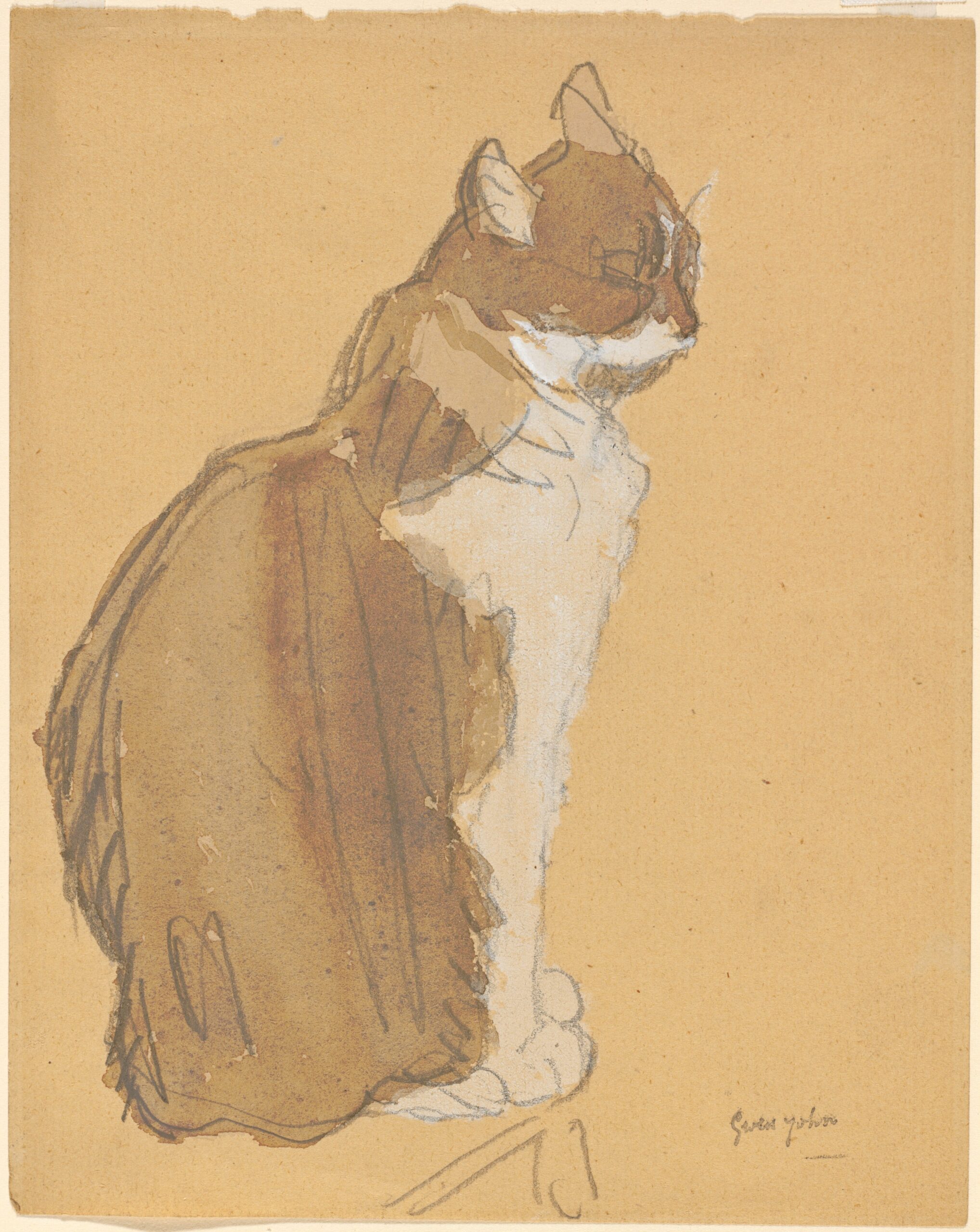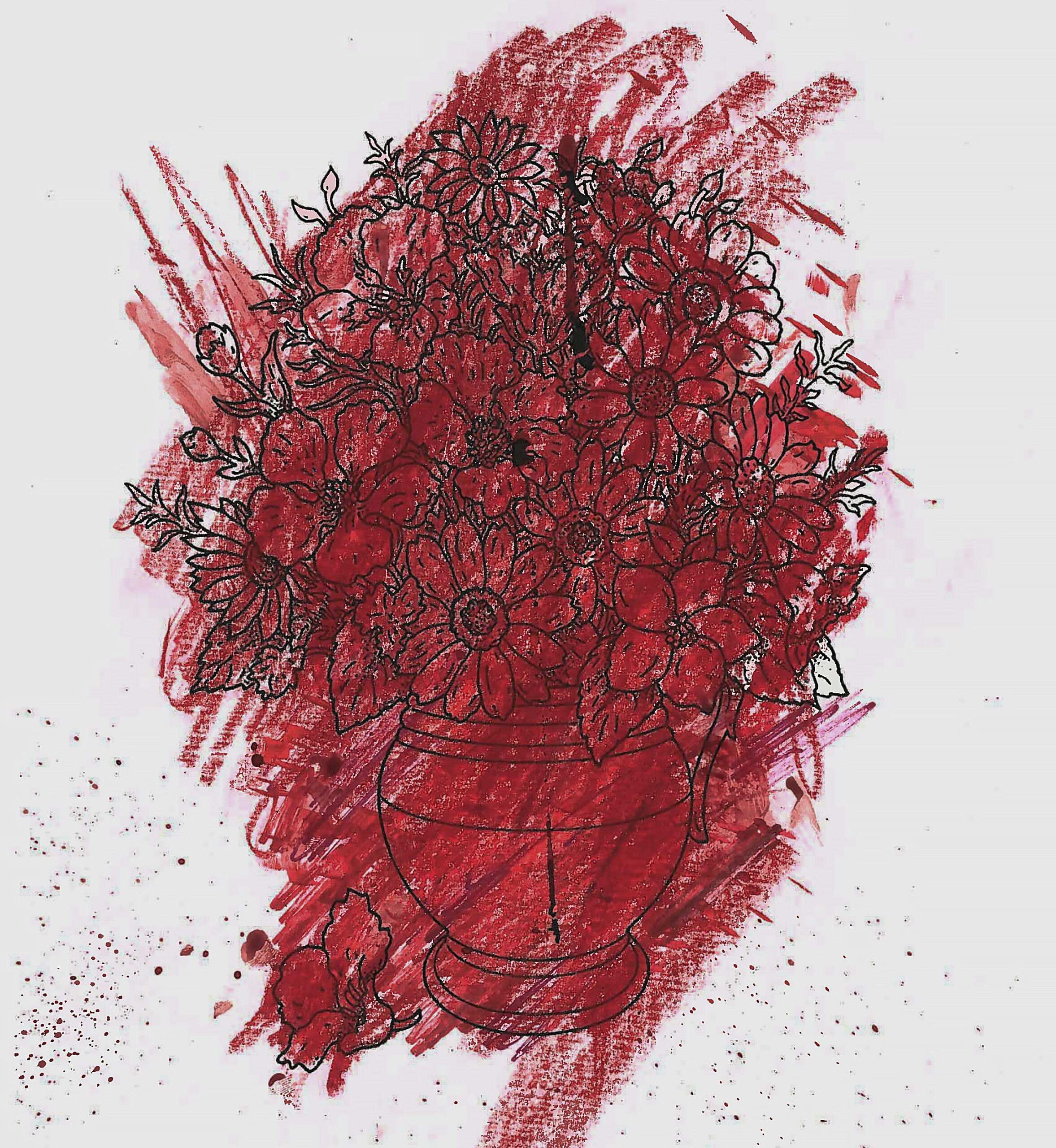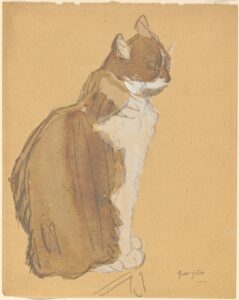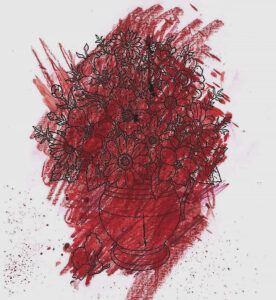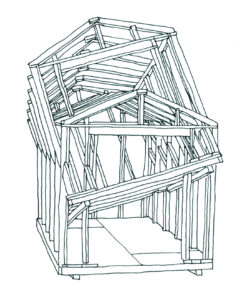I Haven’t Always Been the Walt Whitman Service Area on the New Jersey Turnpike
by Rob Roensch
I don’t know who I was. I only know I need to speak and be heard. Everything requires explanation, and explanation requires time. I assure you the door will be opened before long; I do apologize; I can understand what it must feel like to find yourself locked in a restroom at a service area on the New Jersey turnpike late at night, alone, and then to hear a voice that claims to be who I claim to be.
But the simple fact remains that an explanation is necessary and an explanation requires time. I assure you again that the door will be open before long. I can only thank you for your attention, even if your attention is not freely given.
I will begin at what, at first, I thought was the beginning of my existence. I will try to translate my experience into terms that you can understand.
First: Imagine a feeling as if a hall light is turned on outside a room in which you lie with your eyes shut, still mostly asleep. Outside a closed window there are muffled morning sounds: birds, voices. This feeling for me was the first machines digging lines and holes into the earth, my first awareness of the boundaries of my body.
Next, imagine you were only your bones. You would feel the weight of your own bones, the rain passing through you. Now skin is thrown over your bones and you can feel the wind. Now you can feel your organs lowered into your body, your lungs and liver and heart. You feel their weight in you, their obscure whirring, the blood moving in your body.
Imagine your eyes and ears were hammered into your head, thousands of eyes and ears, and each one was like the shutters in a dark room being thrown open. Imagine an ear you did not know you had suddenly coming unclogged.
Grass and shrubs and trees were planted, like hands, fingers-up, lowered into their sockets. I could feel roots growing; imagine sinking your fingers into earth and feeling them grow down. I could feel the weather and the season. The heavy emptiness of winter and then the anxiety of spring.
My first days were full of these openings and this growth; my first nights were quiet, so my awareness was quiet. I could feel the crackings and settlings in my buildings.
Then, one ordinary day, the highway was opened. I was opened. Imagine you are a faucet that has never been poured through with water, familiar with your hollowness, as if that hollowness was you. Then imagine being poured through with water. Imagine your ignored lungs became a hive of bees. Imagine the floor you stand on becomes an ocean of ants supporting your weight as they began to consume you.
I felt I was dying. In any case I could not think. And in the quiet moments, late at night, I could only let go of any awareness at all except of stupid gratitude for whatever temporary calm there was—no faces in my mirrors, no wet tires smearing my parking lot, no children’s feet scuffling over my tiles. For a long time I was only either oblivion or chaos. But long is not forever.
What changed did not change all at once. The traffic passing had, at first, been overwhelming, a circular saw held close to your ear. But, then, I began despite myself to wish for, and then feel, its incremental, rhythmic changes. In the evenings, I could feel the traffic loosening, like a rope going slack; in the mornings, I could feel the opposite, the rope tightening, straining. (I use the verb “feel” rather than “see” or “hear” because “feel” best expresses my experience of traffic. I feel traffic crossing my body the way you feel the motion of ocean waves if you are standing in the ocean to your ankles, facing inland. (This comparison somehow makes sense to me, which means I must have in life done the same. I must have lived an earlier life, a life like yours.))
Traffic became the baseline of my awareness; traffic is time passing as if time was a sort of music you could feel. After grasping the rhythms of traffic, I became better able to feel thoughtfully. I gradually became able to better manage my awareness, to separate out possible angles of attention. First there was the traffic, like how you are able to feel yourself breathe. And then the layers of motion and matter within me: footsteps, voices, electricity, lights going on and off, trashcans on wheels emptying and filling and emptying, ovens heating up and later tick-ticking themselves cool, water boiling, toilets flushing and filling and flushing, faucets blasting and dripping, water pooling on the floor and seeping into cracks in the tiles, the tiles being mopped late at night, the feeling of a heavy wet mop slopped back and forth across your cracked skin. The painted lines for spaces in the parking lot fading month by month in the sun. The hand driers blowing on and wheezing hot air straight down, the hand driers rusting up and then rattling and blowing cold air and no air, until a man with wrenches and wires gets his hand inside the hand drier—imagine a doctor’s hand inside your ear tinkering and clanking and wrenching and then the air blowing again, open-throated, hot, straight down.
I cannot smell in the sense that you can smell, of course. But, in a way, I can smell. I can from time to time become aware of a particular mist, air within air, perhaps not unlike the difference you feel moving from thick swampy humid night into my dry, air-conditioned space. For example, the smell of the cinnamon buns is warm and gooey and somehow familiar, even to me, though other mists of particles I encounter are less pleasant. The black slick smears inside the dumpsters in the summertime. There are rotting mice inside my walls—do not try to imagine what it would be like to smell something rotting inside yourself.
Yet there are parts of myself never visited by such ill odors. Along the edge of my body, well apart from the parking lot, is a mostly unvisited patch of grass, two gently warped, weathered mostly unused picnic tables tucked in under a tree. The richness of the earth there feels to me like taking a good deep breath.
In this place is where I felt the first echo of what must have been my earlier life: a late afternoon, a young family with a picnic lunch in a cooler. The smell and taste of strawberries together with the smell and taste of earth—all at once the picnic table felt like a mouth, my mouth. I remember what it felt like to have a mouth. I haven’t always been the Walt Whitman Service Area on the New Jersey Turnpike.
Every so often, in the spring mostly, a young person, older than a child, would run, perhaps beginning at the edge of the parking lot across the stretch of grass near the picnic tables, and back in a loop. I received another echo: I felt as if I was running as well, but with a difference. I was running across a long green field that dips down in the distance, at dusk (which does not make sense, because there are no hills within me).
I have experienced several other echoes. Glimpses, perhaps, of my human life. Though not as strong as the strawberries and earth or the running across the long green field. More like sudden shivers of knowing: A silver watch. A certain shade of pale blue. A priest wearing eyeglasses with circular lenses. An unusually strong thunderstorm. A girl child, just too young for school, her hair pulled back by a white ribbon.
For several years, for lack of a better word, I was happy. With being thoughtfully attentive to variations of weather, shapes of newly installed pipes and pipe couplings, and everything in between. I hoped and waited for and, at times, received, echoes.
But soon, I wanted more. I wanted an echo that would explain who I was, how I came to be a service area. But that echo never came.
And much of my experience gives me no echoes. The smell of coffee (which has seeped into my bones) gives me no echoes. Nothing from the old wall of payphones, nothing from the new everpresent chiming of cellphones. Nothing from traffic, and some days, even now, I feel like I am nothing but traffic.
I could feel all the rhythms of the world as I grew familiar with my surroundings. But, with time, those understandings became also limits. I was almost never surprised by what cars and trucks passed on the highway, by what men and women and children passed through my doors. When a wall was torn down and additional restaurant space and seating added it did not feel like eyes opening, but an unpleasant stretching-out. The attachment of an artificial arm.
I grew bored. So, since I had nothing but time and myself and the things within me, I set about to learn to read. When I was young, written letters were mere marks. I could not hear anything other than noise in the human voices. But, just as I became familiar with the pressure of footsteps and the smells in the air and changes in the weather, I grew familiar with language. I cannot say if I knew English in my earlier life, or even the alphabet—I receive no echoes from words or letters. Although my experience with language is different than yours. Letters and words are not ideas, they are like tiny cuts into my skin, and they are everywhere: big wooden letters spelling out “MEN” and “WOMEN,” magazines in racks, newspapers tossed in trashcans, the occasional book laid for a moment face down on a table.
I also overhear much speech—most of it meaningless or merely practical. Coffee ordered, directions given, parents quieting children. A minority of the voices I hear are actual conversations—janitors with cigarettes on the loading dock, a couple sitting down with chicken fingers and fries, arguing about a mother-in-law.
So at first I could only understand the worlds of speech and written language as separate whirling nonsense universes. As I became more attentive to language, I was able to absorb each occasion when speech and written language overlapped—an old man squinting and reading the ice cream flavors: “French. Vanilla. Rocky Road.” An anxious young man at the big map, mumbling the names of towns and roads, touching the map as he did so, like someone tracing down your wrist to your elbow. Even more rarely—a book read out loud. A woman whispering passages from the Bible, the soft black book spread out on the table before her; a young woman reading stories from a newspaper to an older man whose eyes do not move; a mother reading a picture book to a squirming toddler. I learned to understand speech. I learned to read.
I did not know my name when it was stabbed into me, like a toothpick into the soft underside of your wrist, but only years later, when I could make letters make sense. (Also part of my name this year: “Roy Rodgers. Sunoco. Cinnabon. Nathan’s. TravelMart.”)
For years, reading was enough. The newspapers opened every day across my tables just wiped clean by women with rags and spray bottles (like touching your tongue to clean teeth). I settled into myself. For a time, again, I was happy. But, after a time even reading became like watching traffic. The newspapers were new every morning, but the words were not new. The few paperback mysteries and romances and bestsellers in the spinning black wire rack were always the same.
I began having trouble holding my attention where I wished. Instead of reading or listening to conversations I found my awareness pulled toward expanding cracks in the ceiling, the ache in hidden beams. Stains and scars on my tiles like dust on your eyelashes that cannot be brushed away. I grew not only irritated, but bored. What point is awareness if all you are aware of is an endless cycle of ordinary days, the repetition of human motions and language, and your own decay?
I stopped receiving echoes. I stopped trying to listen. In a strange way, I was vanishing.
What changed was the plane.
I learned afterwards what had happened from the television in the high corner speaking and assembling out of electricity, the first and only time, a video image of me on its screen. It was like seeing myself in a dream.
But while it was happening I did not understand. It was a wonderful feeling not to know what was happening. Something outside the limit of my imagination was real.
A small plane made an emergency landing on the stretch of highway that is me.
It was an ordinary summer morning. Just barely not day. At such moments traffic gathers into rhythm. The night’s sporadic snorebursts of long-distance trucks smooths and fills. The same way every day. But, that day, something was different.
I could feel the change of the plane without being able to name it; a turbulence at the edge of myself. A whistling just too high pitched to hear.
All at once the plane breached whatever border of myself there is. All at once the weight of a million buzzing birds within me. The burning fuel, the burning air. The gibberish and prayers of the man inside that only I could hear.
He was in distress, yes. But I did not feel distress. To have suddenly that wild desperate flight within you! I felt that I was not myself—I was that doomed plane, screaming across the sky. In danger, yes. But flying.
And when the plane touched down and held its balance and the man sobbed and the plane briefly kept its speed and flew on me, along the ground, how like nothing else in my life was that feeling, were those wings. Nothing like reading a newspaper, nothing like a screaming child, nothing like a machine full of dry gumballs. The whole width and length of me trembled, actually trembled. I do not know how. A few sensitive souls noticed: an old woman dunking hashbrowns into the hot oil imagined briefly an earthquake and threw out her hands to steady herself. A man in a suit sitting down with a coffee twisted his mouth in surprise, then took out his glasses and wiped them clean and put them back on and nodded to himself, satisfied that the world was the world.
When the plane touched down I came back to my ordinary self. I felt the ensuing traffic jam, a dumb hot heaviness. But I felt more. When the men hooked a chain to the plane, I felt every link of that chain clink like a toothache. I felt all of myself, the individual existence of each piece. For example: a crack in the sidewalk in front of the Pepsi machine. Without meaning to, I focused in there. And then, without meaning to, I felt my awareness focusing in further. Deeper. A grain of sand. A fissure in the grain of sand.
That day and afterwards I could give attention to extremely fine points of myself, of the world. I practiced becoming aware of the smallest physical and atmospheric changes—the taste of dust from other places on the soles of travelers’ sneakers, for example. Traces of washed off perfume. Clickings and hushes in heartbeats. Local interference in the radio waves. Air pressure increasing because of the downstrokes of the wings of migratory birds. Oxygen and ozone.
I can even (in a metaphorical manner of speaking) see molecules. I can see into atoms. And, with patience, with concentrated attention, I can see an electron. By my attention, I can name an electron as seen—I can place an electron in one position and not another. Which means I can affect the world. Over time, I can smooth a mouse-nibbled wire, to stop a fire and save my life. And I have.
But, after years, it was another action that began to interest me. I could also peel away the rubber around a wire. I could become bright flakes of ash alight in the wind. I had the power to die.
But, on the chosen morning, for the first time in years, I was visited again by an echo, the strongest echo I have ever felt. A feeling of sudden awareness so deep and full, as if you were pocked all over with tiny holes, and then a sudden cold rain and you could feel the rain trickling down into an empty space, a cave, inside you, accumulating and filling the cave, the cold water becoming light and vibration.
A work truck, a sort I am as familiar with as you are of anything you ordinarily carry—a grocery bag, a laptop computer—a truck rigged with scaffolding and clamps and straps on both sides to carry sheets of glass. I was not unfamiliar with sheets of glass, or even colored sheets of glass. Fifty odd years as a service area means everything has passed through you. I was not even unfamiliar with that particular shade of red, at once bright and dark. If you have my time and attention, you encounter most things it is possible to encounter, even a sheet of dark bright red glass, fragile as the surface of a pond, strapped on the side of a big rusty truck.
But on the morning I had planned to cease to exist there was a particular young autumn light through the glass. And, in that light, I saw (I did not overhear or remember or get a feeling of—I saw) a stained glass window. Not a church, not an altar, not a carpet or crucifix, not a priest or a sheet of music, not a word, a family, a child—a window. A real window that I have known.
That bright dark red, shards of it, light through it from a sunset. Pale bright blues and whites in the robes of the young woman, Mary. The deep greens of the earth at her feet. Thick black iron web holding the colors together, in place.
What does it mean that I am here, and aware, and not nowhere? It must be important. It must be important that I have learned to speak. It must be important that you are listening.


